August 31, 2020
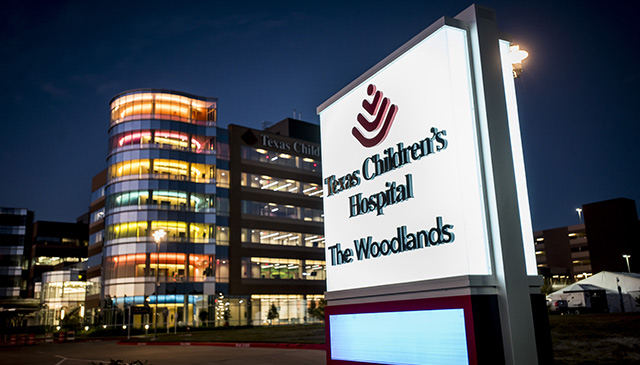
Approximately 25 percent of children and adolescents in the United States have a diagnosed mental, behavioral, learning, or developmental disorder, and these numbers are growing rapidly as more children and families continue to be impacted by the uncertainty, economic stress and daily disruption caused by the COVID-19 global pandemic.
“Since we began building our developmental-behavioral health infrastructure in The Woodlands in 2016, our focus has been on developing a robust program that serves the broad developmental and mental health care and behavioral needs of children and families,” said Dr. Paul Sirbaugh, chief medical officer at Texas Children’s Hospital The Woodlands. “From diagnosis to a multidisciplinary treatment approach, our patients and families can access services in their own community from behavioral health specialists who treat a myriad of mental health issues.”
The Developmental-Behavioral Health team consists of psychiatrists, psychologists, a clinical social worker and a developmental-behavioral pediatrician who collaborate with colleagues at Texas Children’s, Texas Children’s Pediatrics and in the community to design efficient methods to screen and identify patients in need of our services.
Having developmental-behavioral health services available at Texas Children’s provides the security of knowing that children and families will benefit from science-informed practice and a focus on quality and outcomes, ensuring our patients and their families have access to the right care, in the right place at the right time.
Our patient model of care
Referrals to the Developmental-Behavioral Health team at The Woodlands are routed through the Behavioral and Developmental Sciences Referral Center. A dedicated referral team reviews all patient referrals closely and triages them to the appropriate service, location and provider based on the patient’s needs. The developmental-behavioral health providers can also bring other members of the team on board for those patients who would benefit from more than one service.
Psychology
The psychology team in The Woodlands offers diagnostic assessment and psychotherapy intervention services either through in-person or e-Health video visits for children and adolescents with behavioral health concerns.
“Within psychology, our focus is on using evidence-based tools and interventions to diagnose, treat and monitor outcomes for our patients,” said Chief of Psychology Dr. Karin Price. “Our psychology providers work with a broad spectrum of pediatric and adolescent patients including those with common mental health concerns and difficulties related to acute and chronic health issues.”
The Woodlands team consists of four psychologists and a certified social worker with diverse specialties:
- Dr. Elizabeth Franklin treats adolescent patients with mood, anxiety and eating disorders. She also serves as the bariatric surgery psychologist for The Woodlands Bariatric Surgery Program, where she conducts pre-surgical psychological evaluations and assists patients with interventions for binge eating disorders.
- Dr. Jennifer Kazmerski specializes in pediatric behavioral sleep medicine. Working with our Sleep Center, she provides evidence-based therapy services to children and their families for a range of sleep concerns and sleep disorders including behavioral insomnia, nocturnal enuresis and obstructive sleep apnea.
- Dr. Aime Allain provides family-based interventions for common child and adolescent mental health concerns, including anxiety and depression. She counsels patients on relational concerns whether it be helping families manage conflict and/or social relationships in a healthier, more adaptive way.
- Dr. Don Caudle provides neuropsychological assessment for patients with illnesses or injuries that impact their cognitive functioning, helping families and educators understand a child’s strengths and weaknesses, and how to best help them in their daily lives.
- Nikki Adeleke is a licensed clinical social worker who is part of the Traumatic Stress and Resiliency program that provides support and intervention to children and families facing trauma, stress and personal crises.
While psychologists and psychiatrists both specialize in evidence-based diagnostic assessment and treatment planning for patients, Texas Children’s psychiatrists provide more specialization in medication management.
Psychiatry
Under the guidance of Dr. Kirti Saxena, interim section chief of psychiatry at Texas Children’s, the psychiatry team in The Woodlands consists of two psychiatrists Drs. Nabil Guirguis and Humera Danwar, who also see patients through in-person visits or e-Health video visits, making it easier for providers and their patients to connect remotely.
“We have a full case load of patients in our clinic,” said Saxena. “There is a huge demand for children with primary psychiatric needs, but also patients with chronic medical conditions who need psychiatric services. Many of our slots are filled for existing patients, so trying to get new patients in has been challenging for us, but our providers are doing a fantastic job of accommodating as many patients as we can given our current resources.”
Often times, patients with mental health needs may benefit from more than one service. If a patient has been diagnosed with a mood or anxiety disorder, a traumatic brain injury, or is lagging behind in school after a diagnosis of Attention-Deficit/Hyperactivity Disorder (ADHD) – and in addition to psychotherapy – they need medication to manage the symptoms of their illness more effectively, that’s when the expertise of psychiatry comes into play.
“We collaborate with our psychology partners regularly to ensure that we provide the most comprehensive, individualized treatment plan for our patients,” said Danwar. “We also work with colleagues in developmental pediatrics. If we have a patient with autism whose symptoms are not being managed well with other therapies, and medication management is needed, that’s when my expertise is needed to assist with their treatment plan.”
Developmental Pediatrics
The Meyer Center for Developmental Pediatrics at Texas Children’s is the third component of the comprehensive model of care for patients and their families enrolled in the Developmental-Behavioral Health Program in The Woodlands.
Led by Dr. Robert Voigt, the chief of service for the Meyer Center and head of the section of developmental pediatrics in the Department of Pediatrics at Baylor College of Medicine, our developmental-behavioral pediatricians provide medically directed diagnostic consultations for infants, children and adolescents spanning the full spectrum of developmental-behavioral pediatrics – from intellectual disabilities, autism spectrum disorders, and cerebral palsy to learning disabilities, attention-deficit/hyperactivity disorder (ADHD), and motor coordination disorders. The Meyer Center also provides medically directed developmental evaluations for children at increased risk for developmental-behavioral disorders due to prematurity or other neonatal complications, medical conditions such as congenital heart disease, genetic syndromes, or neurologic disorders, or adverse psychosocial experiences.
“Our approach is interdisciplinary and family-centered, and our evaluation considers the individual and collective impact of biological, genetic, environmental and social factors,” said Dr. Candice Allen, the only developmental- behavioral pediatrician at Texas Children’s Hospital The Woodlands. “Our team evaluates each child and works with the family on assessments, team meetings and conferences to develop an individualized treatment program so that every child who seeks our services receives the care and support they need to achieve their highest potential.”
As medical director of the SOAR (High Risk Neonatal Follow Up) Program at The Woodlands, Allen works closely with families to ensure a seamless transition of care following their infant’s discharge from the NICU. Through this program, the infant’s early growth and development are tracked to ensure that any developmental concerns are detected and addressed as early as possible. If developmental concerns arise, The Woodlands team of SOAR Occupational, Physical and Speech therapists are ready and able to provide any therapy services that are needed.
“It’s so critical that our patients are able to readily access all of our developmental-behavioral health services in The Woodlands,” Allen said. “The sooner that a patient’s mental health, neurodevelopmental and/or neurobehavioral concerns are diagnosed and treated early on, the better the long term outcomes will be for the patient and their family.”
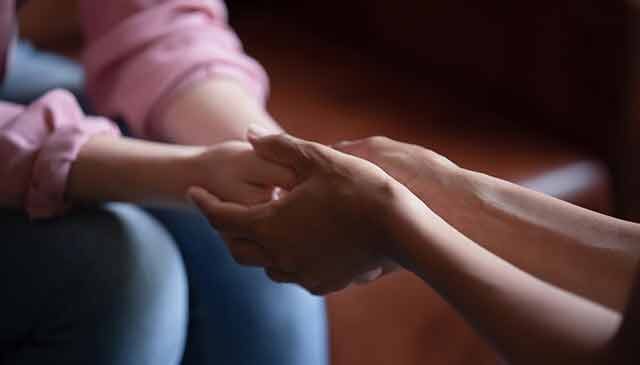



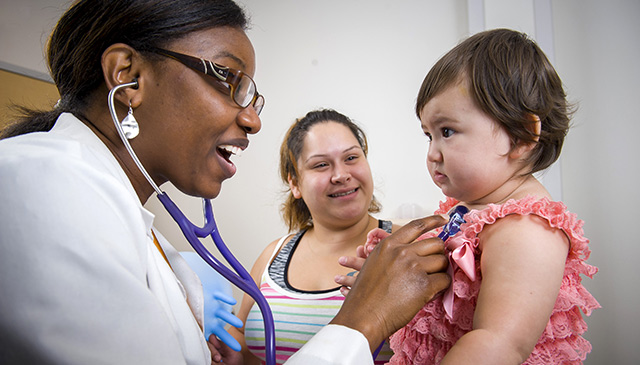
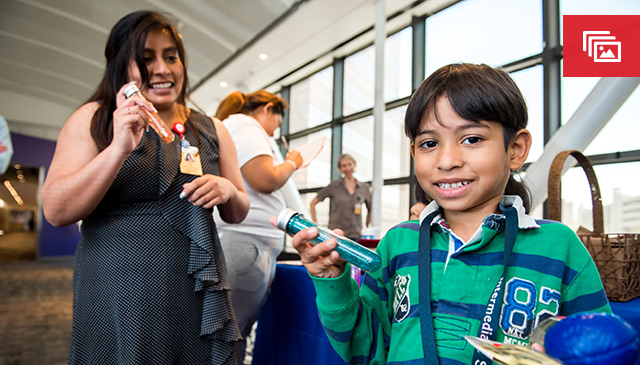


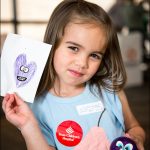

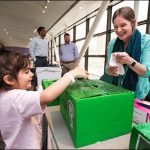
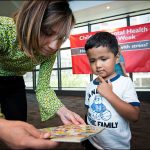







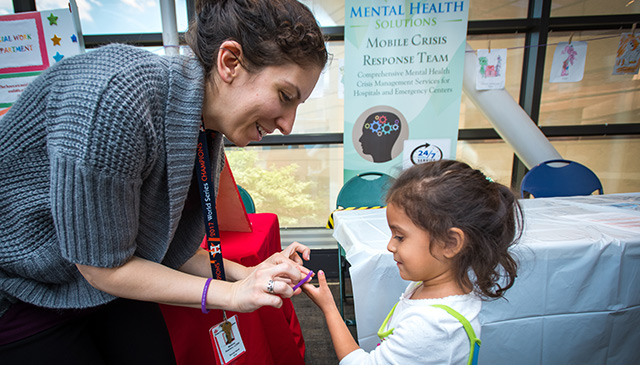 September is National Suicide Prevention Month and along with continuing to inform people about warning signs, Texas Children’s has recently elevated our prevention tactics with the use of the Columbia Suicide Screening Rating Scale (C-SSRS).
September is National Suicide Prevention Month and along with continuing to inform people about warning signs, Texas Children’s has recently elevated our prevention tactics with the use of the Columbia Suicide Screening Rating Scale (C-SSRS).